A pause before I began
I have taken a few days to put ‘fingers to keyboard’ to write about Bomber Mafia by Malcolm Gladwell because it got me as interested as it did riled. So, this blog’s title is self-directed and aimed (with precision) at the author and me. I initially felt he was hero-worshipping certain Americans and bashing everything British, something that many American historians appear to have done in the past.
I appreciate one of the next comments will be about a film, but examples of this are, dismissing the efforts of XXX Corps in Market Garden because when halted, some British troops brewed tea. 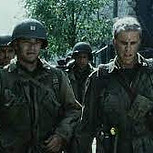 Or in Saving Private Ryan, when a 101st Airborne Captain, fighting behind the lines since D-Day appears to be intricately aware of how little Montgomery is advancing on his side of the invasion. However, I will keep telling myself to try to be objective.
Or in Saving Private Ryan, when a 101st Airborne Captain, fighting behind the lines since D-Day appears to be intricately aware of how little Montgomery is advancing on his side of the invasion. However, I will keep telling myself to try to be objective.
Same, but different
The authors do take a similar approach. McDougall even quotes another Gladwell book as evidence for one of his contentions.
Their underlying stories are backed up by anecdote after anecdote. Both give extensive biographies of people and ideas as and when they crop up in the story. This can be quite confusing at times, and one wonders when they are going to return to the story. It is here where McDougall probably wanders more extensively than Gladwell, from Greek gods to his own twenty-first-century experiences.
However, the main difference is that McDougall gives credit where it is due, but Gladwell paints the British as the bad guys in his story and the Americans as the good, even when they fail to fulfil their principles.
What it’s about
I keep studying the Second World War as I find it fascinating and there always seems to be more to discover. This book did not disappoint, 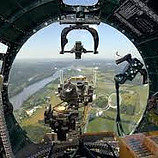 the information about the development of the Norden Bomb Sight and napalm was particularly interesting.
the information about the development of the Norden Bomb Sight and napalm was particularly interesting.
Unfortunately, the continued hero worship of the brilliance of the Bomber Mafia theories and the Air Corps Tactical School officers who came up with them overshadowed such information.
The British use of nighttime strategic bombing using carpet bombing tactics to destroy German cities is much maligned. The implication is that they lazily decided to do this or in the case of Arthur ‘Bomber’ Harris, 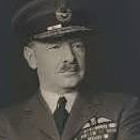 he chose to do this because he was psychotic.
he chose to do this because he was psychotic.
When the Norden bombsight is used to attack the Schweinfurt ball bearing factory a ‘choke point;’ as per the Bomber Mafia theory, it does not have the success that they thought it would. The belief was that if you destroy the factories the German war machine would grind to a halt.
Unfortunately, it did not work. The genius of the bombsight relies on the belief that the bomber will always get through. However, the reality was that even when the US Flying Fortresses did get through, they felt they had to take evasive action, neutralising the sight’s effectiveness.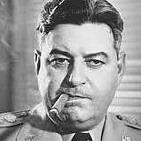 Even when Curtis LeMay asked his pilots to stop taking evasive action, the desired damage still did not occur.
Even when Curtis LeMay asked his pilots to stop taking evasive action, the desired damage still did not occur.
Morale and morals
The book advocates that the ‘Bomber Mafia’ were morally superior to pretty much anything the British had done to date or would do during the rest of the war. If the British were so lacking in their morals that they used euphemisms such as ‘de-housing’ then maybe Gladwell should ask the question to consider why this was the case. Was it a lack of technology allowing them to precision bomb? Was it that the US could be more moralistic in their approach to the European conflict because they had not been attacked directly by Germany? Would this change when the bombing of Japan began in earnest?
The politics behind decisions, that something first had to appear to be getting done, then it needed to appear to be achieving something of note means that morals may have to play second fiddle to military expediency. Just a few reasons for this could be that such bombing was aimed at destroying the morale of the German population but also was meant to be positive for the morale of the British and Allied populations because something was being done. In addition, Stalin wanted a Second Front, and the strategic bombing campaign was used to demonstrate to him that the Allies were doing something whilst they were preparing for the invasion of Northern Europe.
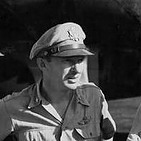
When Haywood Hansell was removed from command in the Pacific was it because he was not fighting the campaign that needed to be fought in the war that was being fought with the technology and political will that was available at the time? The theory was not working in practice and the technology of the time could not facilitate the theory well enough in a total war.
Final thoughts
Gladwell ends by discussing a conversation he had with several of today’s airmen. They were discussing how they can now target a chimney stack with a bomb, this is necessary so you can kill a single person in a single room without causing collateral damage. Gladwell sees this as a victory of the Bomber Mafia’s theories. I suppose I’ll give him that.
I am glad I read Bomber Mafia, especially as it explained, to some extent, what a meteorologist may have done during the war as my Grandfather was one. I am close to finishing Natural Born Heroes and despite sometimes thinking that McDougall has got lost, I am still enjoying it immensely. Finishing SAS: Rogue Heroes will be my next task.
Whilst ruminating on how to approach this review, I listened to one of the most recent We Have Ways podcasts. The guest was Jane Gulliford Lowes who was discussing her work on researching the RAF’s laying of mines in ports and estuaries. Initially, the mines were laid at a low level, but they soon were able to do it from a greater height. By its very nature, precision was key and was regularly achieved. The RAF, primarily through 617 Squadron and other squadrons with Mosquitos, achieved successful precision bombing missions beyond Operation Chastise.
Next up for discussion are some Second World War entry-level books, otherwise known as books that are good for children.
Thanks for reading
BigT
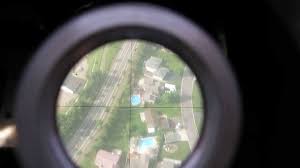
Very much enjoyed the well informed commentary
Funny that critics of area bombing don’t make the link between the RAF offensive and Hiroshima Nagasaki where the size of the bombs were utterly decisive
German leadership made the point that more Hamburg firestorms would have caused them to capitulate
Thank you for your comment David, I appreciate the feedback and wholeheartedly agree. Also that Hiroshima and Nagasaki were picked because most of not all larger or similar sized cities had also been pretty much destroyed. I have just finished Big Week by James Holland where he focuses on the need for a long range escort fighter to protect the US bombers because they had learnt, despite warnings from the British, that no matter how well armed, the bomber will not always get through. In addition, rather than attacking nodel points like the Schweinfurt ball bearing plant, the goal became destroying the Luftwaffe.
Thank you again
All the best
BigT